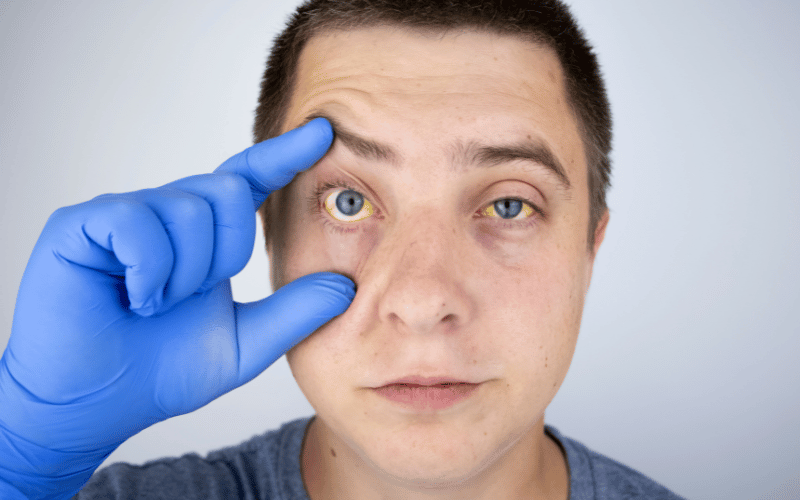4. Skin and Eyes Yellowing: Jaundice as a Signal of Hepatic Strain

Jaundice is perhaps one of the most visually striking symptoms of congestive hepatopathy. This symptom manifests as a yellowing of the skin and the whites of the eyes, a direct result of the liver’s diminished capacity to process bilirubin, a byproduct of the breakdown of red blood cells.
The path to jaundice begins in the blood. As the liver struggles with congestion, bilirubin starts to accumulate, spilling into the bloodstream and diffusing throughout the body’s tissues, imparting a yellow hue. This discoloration can range from a subtle lemon tint to a pronounced saffron cast, often first noticed in the sclera—the whites of the eyes—before becoming apparent in the skin.
Patients may observe this change insidiously, with the slow onset giving the body a sallow appearance. The psychological impact of jaundice is non-negligible, as the visible nature of the symptom can lead to self-consciousness and social withdrawal. It’s a stark, external sign of an internal dysfunction, often prompting a deeper investigation into the state of the liver and heart.
Beyond the cosmetic concerns, jaundice can also be accompanied by pruritus, an intense itching caused by the accumulation of bile salts in the skin. This itching can be relentless and debilitating, further diminishing the quality of life and complicating the management of the overall condition.
Treatment focuses not only on alleviating the jaundice but also on managing the underlying cause: the congested liver. While phototherapy is a common approach in neonatal jaundice, in adults with congestive hepatopathy, it’s a matter of addressing the heart condition leading to liver congestion. As circulatory function improves, the liver can resume its normal processing of bilirubin, gradually clearing the jaundice. (4)